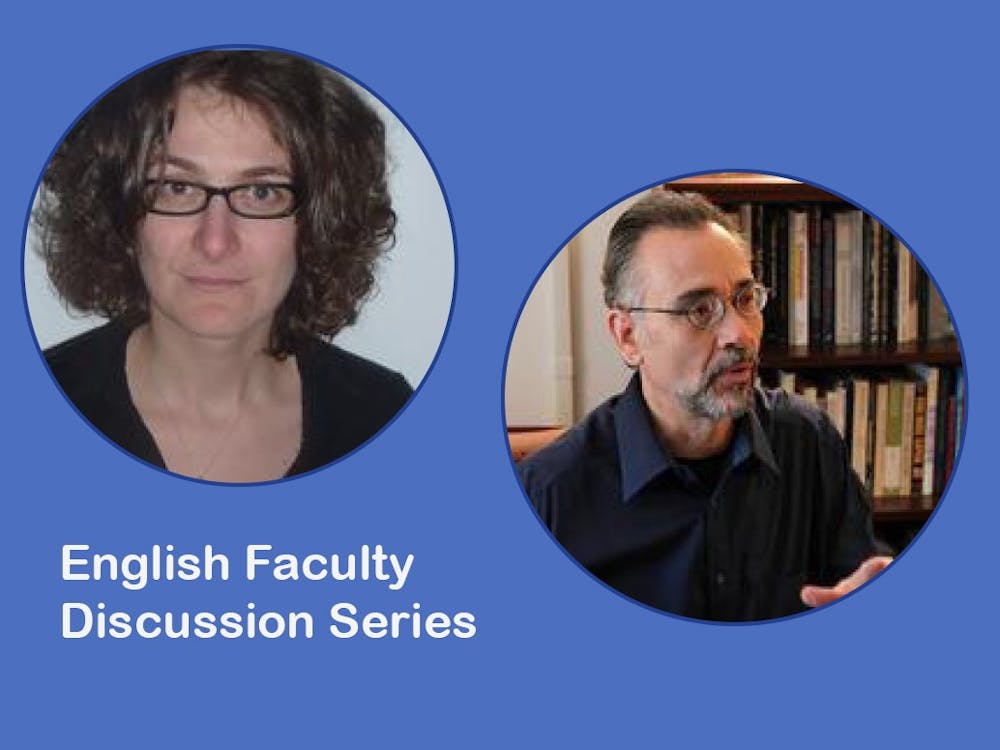Each year, the english department is host to a number of events that invite students to hear from faculty members about their interests or latest research endeavors. Usually, the talks are hosted in more intimate settings: a space on campus or in a faculty member’s home over dinner. But this year, with events now held remotely, the department was tasked with re-thinking ways to engage students on a social and intellectual level. The result? A monthly faculty discussion series held over Zoom where faculty members are able to center conversation around their latest work.
Recess spoke with Associate Professor of English and Director of Undergraduate Studies Corina Stan about organizing the English Faculty Discussion Series and the department’s hopes for the fall semester. For students and staff alike, it has been difficult to meaningfully connect both inside and out of the classroom with the limitations of online meeting platforms. The department wanted to create a series where that sort of connection might be more possible.
“We always have events in the english department for socializing, informing students about the work we do, about courses and opportunities,” Stan said. “They are an important aspect of the life of the department, but this year, it is of course impossible to organize events in person. Last year's [in-person] events had a certain spontaneity to them that you can’t really recreate, so the series was organized in order to compensate to some degree for that — to create a space both for intellectual exchange and for staying in touch with the community: to socialize to the extent that it's possible.”
Although the sort of spontaneity of in-person events is difficult to recreate, the series will offer students rare and special insight into subjects that their professors have been exploring or working on outside of class. Attendees will have access to the necessary reading material before the presentation, and a Q+A session will follow.
“Each event will be different as it centers around the work of a different faculty member. All of us work on very different things. Professor Ferraro is an Americanist, he will talk about the way he teaches American literature, but also about the critical conversation around a canonical text, Nathaniel Hawthorne’s ‘The Scarlet Letter,’” Stan said. “Next month, I will do a presentation on tact ... What I anticipate is that each of these [presentations] will have a unique character based on the nature of the work discussed and the persona of the professor presenting.”
Of course, interest in english department events tend to attract majors and those in adjacent departments, but the series is open to all students and members of the Duke community, regardless of academic concentration, who wish to take part in the faculty discussion and potentially learn something new. It is also an opportunity for students and faculty across departments to interact.
“What I hope is that [students] will get a sense of the kind of work being done in the english department; the topics of the presentations each month are, I hope, intriguing: transgression and redemption, tact and so on,” Stan said. “I hope students will develop an interest in these events, in faculty work and in continuing the discussions beyond the confines of these events. Of course, I also hope that the students will want to take more english classes.”
Following Professor Ferraro’s presentation “Transgression and Redemption in American Fiction” that took place last Friday, Sept. 11, Professor Stan will present her latest work on tact Nov. 9, specifically to generate conversation COVID-19’s impacts on “self and community.”
“The article I am going to discuss is about tact in dark times. Usually we think of tact as being nice or protecting someone’s feelings,” Stan said. “I am showing that thinkers who have considered tact in the past century did so when they thought life was threatened. They thought of tact in the sense of being attentive to human individuality and the conditions of human flourishing. It is a very deep sense of tact that can be cultivated through education and the frequentation of literature.”
Despite the difficulty in connecting with one another that students and faculty have been facing, this fall’s selection of virtual arts and humanities programming demonstrates the commitment of our student groups and academic departments to building meaningful connection and engagement. That if anything, building and maintaining community in the virtual space allows us to hold greater appreciation for our moments together. The English Faculty Discussion Series also hopes to enhance that appreciation.
“We're lucky to still have the opportunity to connect over Zoom, but it makes me realize how much we take for granted in meeting with one another,” Stan said. “I hope it makes us more aware of the importance of having a social and intellectual life on campus, and what a privilege it is to be surrounded by scholars and people who are interested in ideas and books. So I guess [I hope for] an enhanced appreciation of intellectual community.”
Get The Chronicle straight to your inbox
Sign up for our weekly newsletter. Cancel at any time.

